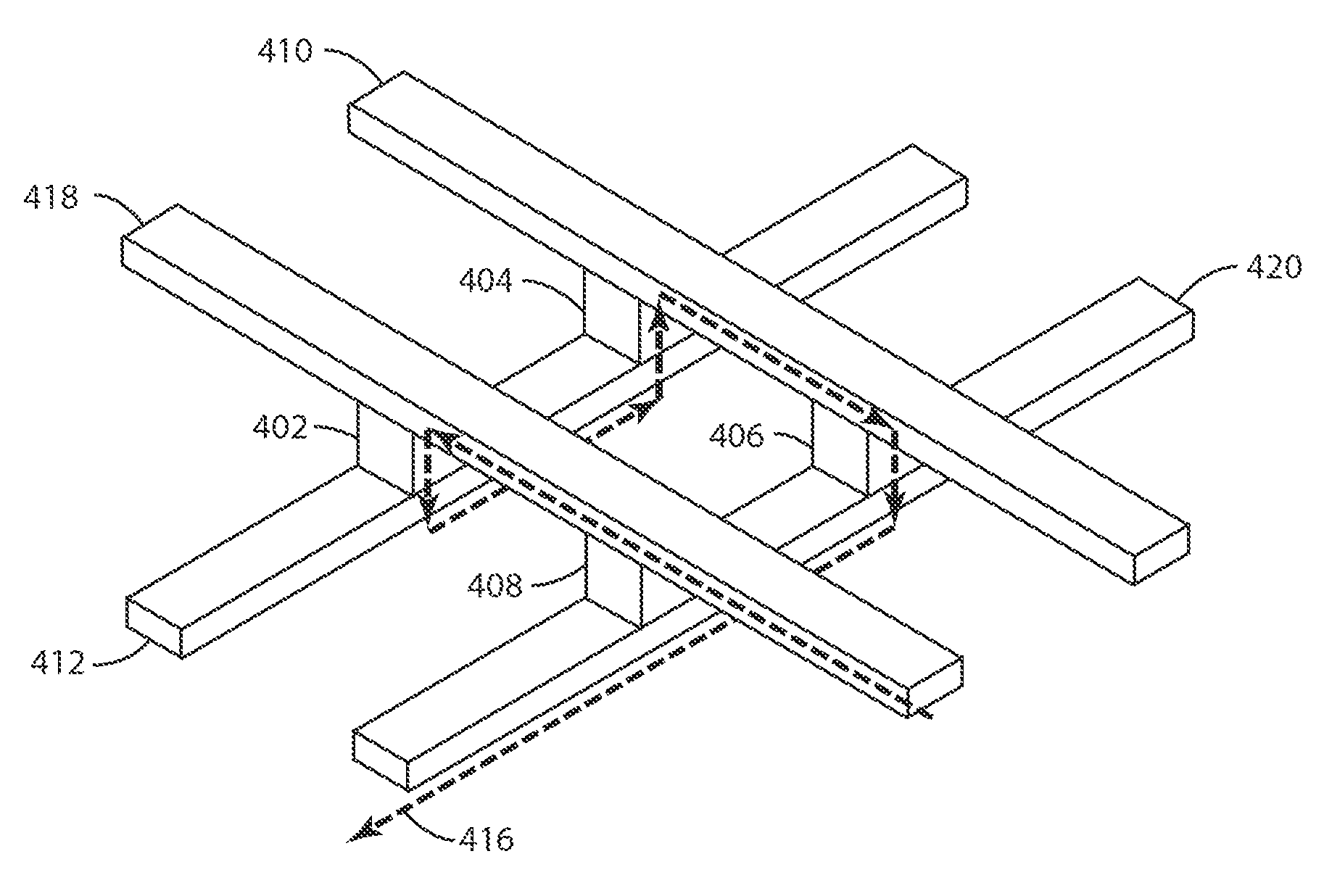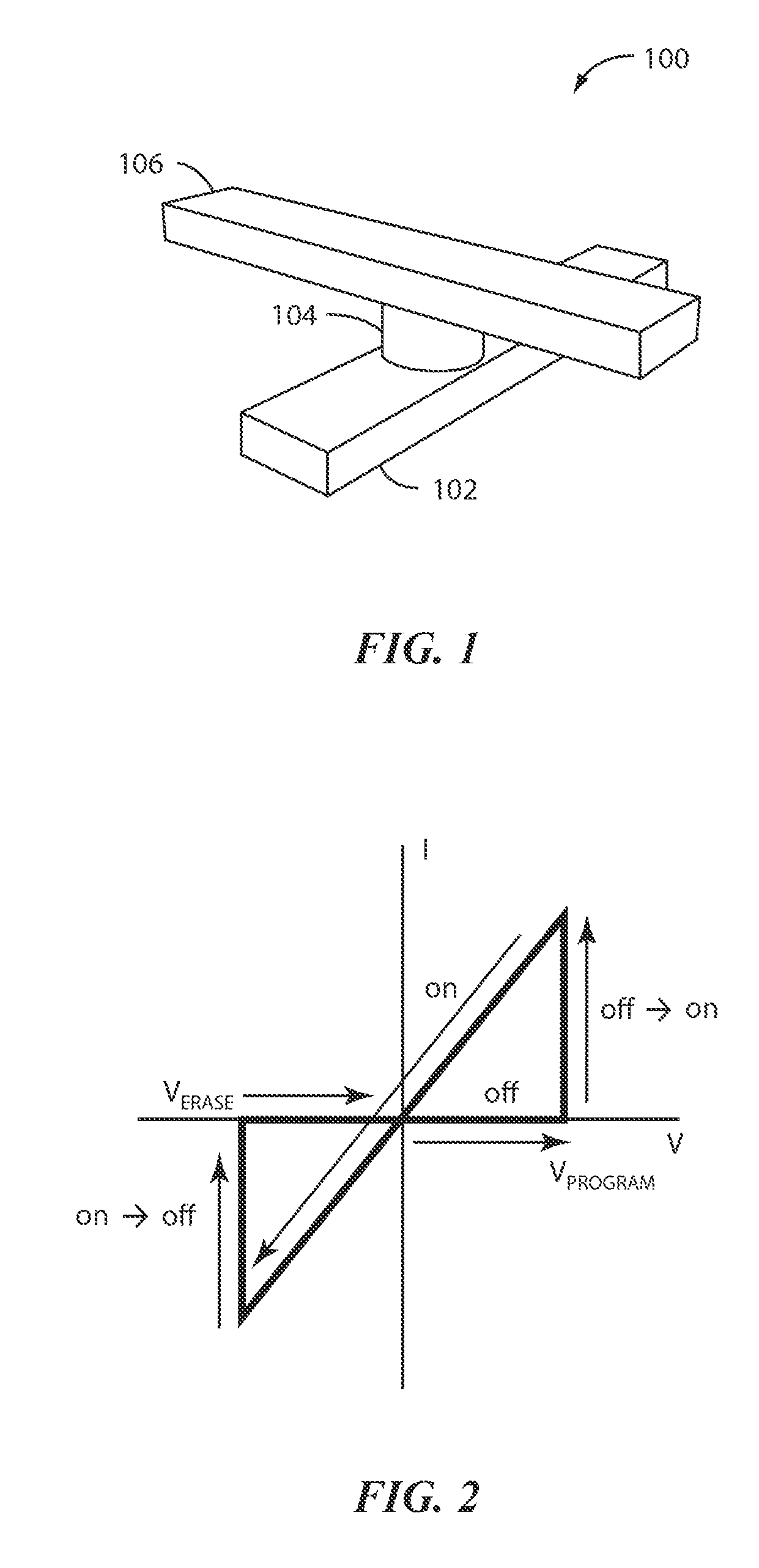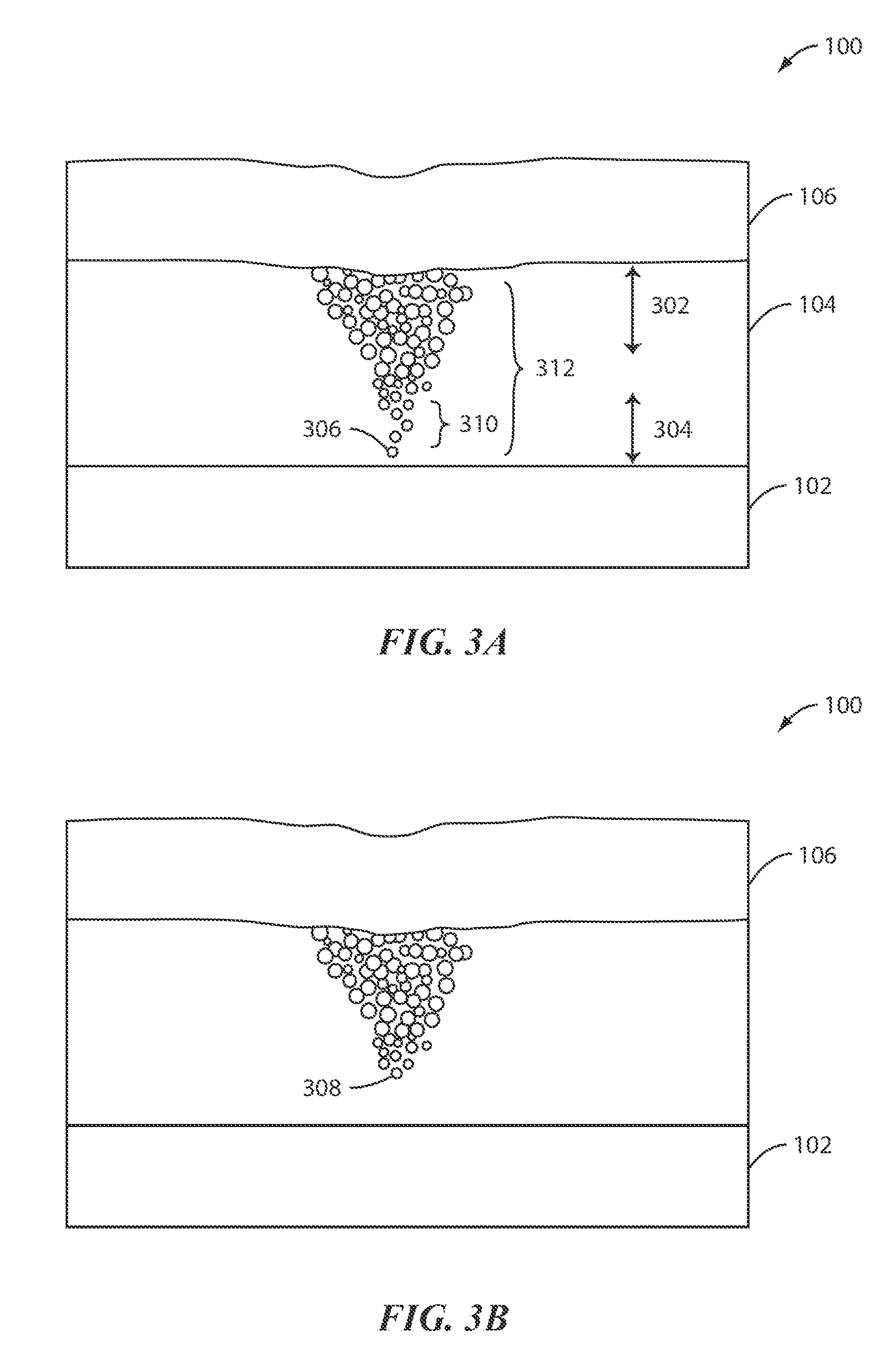Switching device having a non-linear element
a non-linear element and switching device technology, applied in semiconductor devices, digital storage, instruments, etc., can solve the problems of increased power dissipation, non-scaling of sub-threshold slopes, and preventing proper device operation, so as to achieve high switching speed and low leakage current characteristics , the effect of high density
- Summary
- Abstract
- Description
- Claims
- Application Information
AI Technical Summary
Benefits of technology
Problems solved by technology
Method used
Image
Examples
Embodiment Construction
[0028]The present invention is generally directed to a memory device. More particularly, the present invention provides a structure and a method for a resistive switching cell having a nonlinear element. The switching cell may be used in a Resistive Random Access Memory (RRAM) or any highly integrated device. It should be recognized that embodiments of the present invention can have a broader range of applicability. Although the present invention is described with respect to specific embodiments, the embodiments are only used for illustrative purposes and should not be considered limiting.
[0029]RRAM is typically a two terminal device in which a switching element is sandwiched between a top electrode and a bottom electrode. The resistance of the switching element is varied by applying a voltage to the electrodes or a current through the switching element. Resistive switching can be bipolar or unipolar. In bipolar switching, the change in resistance of the switching element depends on...
PUM
 Login to View More
Login to View More Abstract
Description
Claims
Application Information
 Login to View More
Login to View More - R&D
- Intellectual Property
- Life Sciences
- Materials
- Tech Scout
- Unparalleled Data Quality
- Higher Quality Content
- 60% Fewer Hallucinations
Browse by: Latest US Patents, China's latest patents, Technical Efficacy Thesaurus, Application Domain, Technology Topic, Popular Technical Reports.
© 2025 PatSnap. All rights reserved.Legal|Privacy policy|Modern Slavery Act Transparency Statement|Sitemap|About US| Contact US: help@patsnap.com



